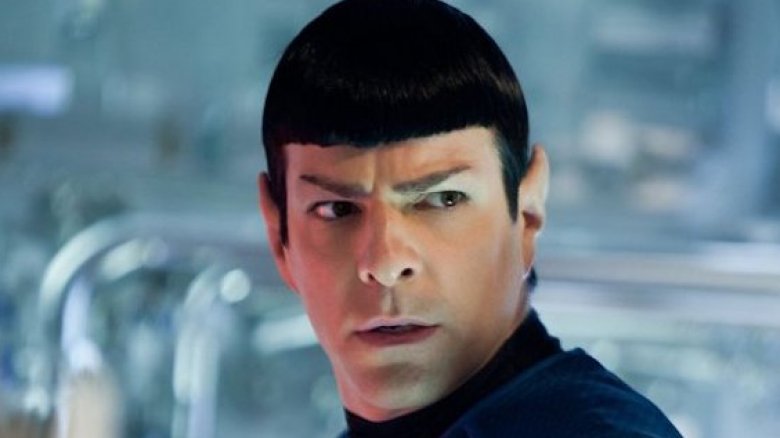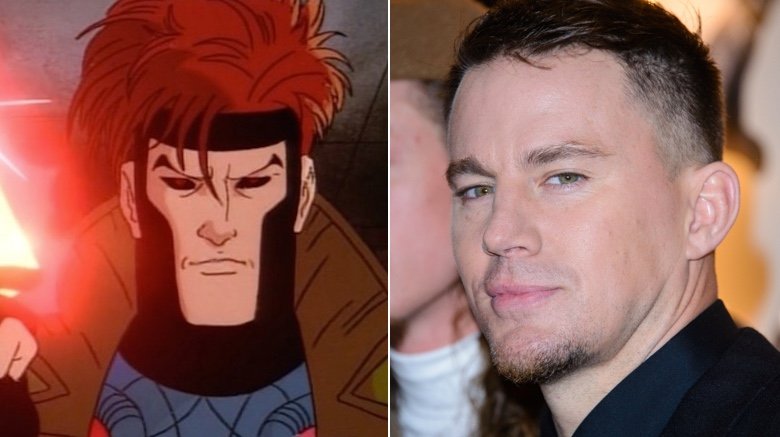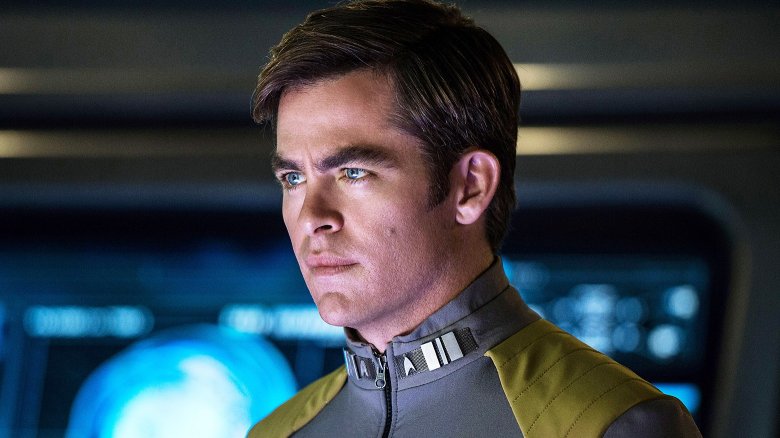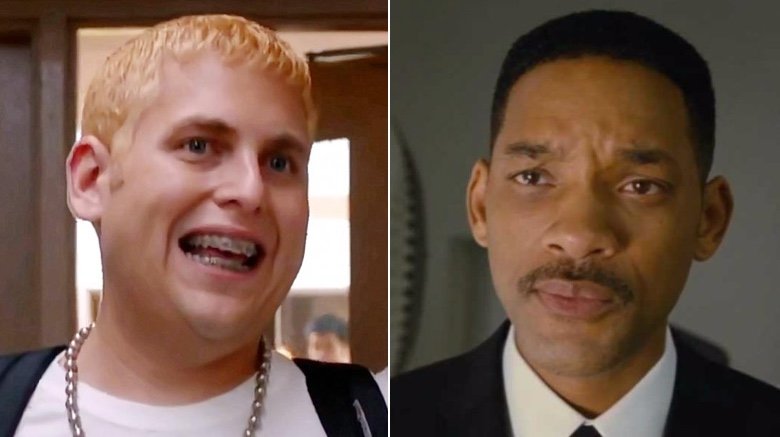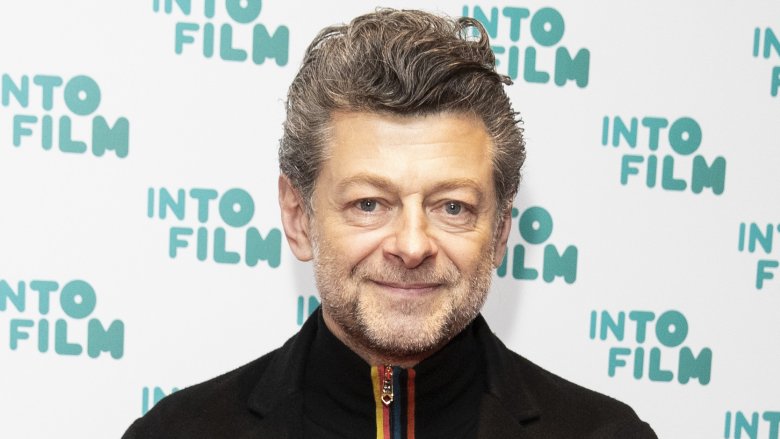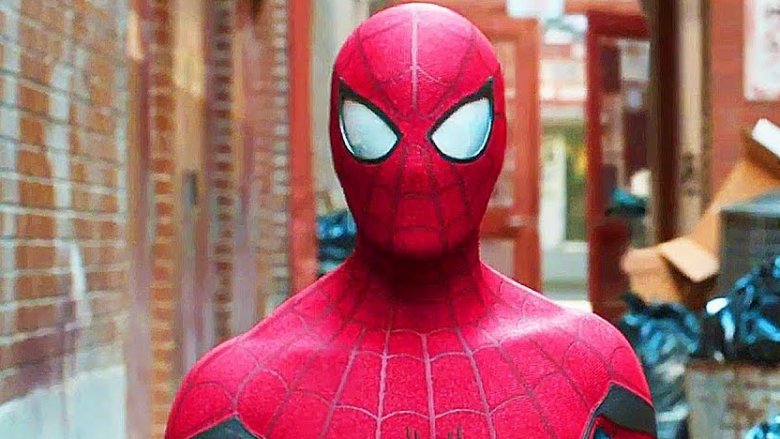The Real Reason These 2019 Movies Were Canceled
Making a movie — particularly a big-budget, would-be Hollywood blockbuster — is a tremendously complicated endeavor bordering on an ordeal. It's a wonder any get made at all, what with producers finding a good script, wrangling the right actors, assembling a crew of available skilled technicians, and then shooting the thing in some green-screen facility or far-flung location. But through a series of miracles, hard work, talent, and perseverance, that movie gets made. Hopefully, it goes on to entertain and thrill viewers through a theatrical run or prominent appearance on a streaming service.
Hundreds of movies get made every year, and most of them go off without a hitch, but there are some that seem to be doomed from the start. For some movies, everything that can go wrong does... up to the point where the studios or the filmmakers decide to call the whole thing off. Here are some previously announced and greatly anticipated movies that reached the end of the line in 2019.
The Gambit gambit didn't pay off
Over the course of nearly 20 years, the X-Men movie franchise placed its ensemble cast of mutants in various points across various timelines. Wolverine was the first character to spin off into his own sub-franchise, with X-Men Origins: Wolverine, The Wolverine, and Logan. The X-Men-adjacent Deadpool followed. For years, Fox tried to get more standalone mutant movies off the ground, starting with a proposed follow-up to Origins: Wolverine focused on Magneto (which was eventually reworked into the ensemble prequel X-Men: First Class).
The other solo X-movie that came closest to the screen was one about Remy LeBeau, a.k.a. Gambit, the Louisiana-born, staff-wielding mutant who's notably adept at throwing explosive playing cards. Gambit is a fan favorite, having been a main character on the '90s Saturday morning X-Men cartoon. He even made a brief appearance in X-Men Origins: Wolverine (portrayed by Taylor Kitsch). Fox stacked the deck for the film's chances by casting likable, bankable Channing Tatum in the title role. But the studio just couldn't get this movie into play — a handful of directors came and went, including high-profile helmers like Doug Liman (The Bourne Identity) and Gore Verbinski (Pirates of the Caribbean).
Gambit had been shuffled around a couple of 2019 release dates, but the ongoing director search had thrown its status into question. As 2019 began, Fox had Gambit scheduled for release in March 2020, despite not having a director actively attached. Then Disney acquired Fox, throwing its whole slate of projects into disarray. In May 2019, the new bosses moved around the release dates for a bunch of movies, including Gambit. The Tatum vehicle went from a March 2020 street date to... nothing. It disappeared from the schedule.
The new Star Trek franchise won't boldly go to a fourth entry
The enduring Star Trek big-screen franchise flew high for decades. After focusing on the characters from the original 1960s TV series, the movies shifted focus to the world of Star Trek: The Next Generation, ultimately sputtering out when the 2002 entry Star Trek: Nemesis grossed $43 million, the worst ever showing for a Trek movie. It took the visionary sci-fi mind of J.J. Abrams (Lost, Star Wars: The Force Awakens) to revive Star Trek movies for a new generation, reviving well-known, old-school characters like Kirk and Spock to create three fun and contemporary blockbusters: Star Trek, Star Trek Into Darkness, and Star Trek Beyond. That last one earned $158 million in the summer of 2016, enough to merit a fourth entry.
Paramount announced the project at CinemaCon 2018, with S.J. Clarkson attached to direct. Zachary Quinto was reportedly up to reprise his role as Spock, and Chris Hemsworth may have returned, too, having played Captain Kirk's father in 2009's Star Trek. Not immediately on board, however: Chris Pine, the guy supposed to play the fairly important role of Captain Kirk. Pine and Paramount couldn't come to an agreement on a contract, and the same issue occurred when trying to sign Hemsworth. The studio ultimately canceled the entire operation.
World War Z was the Z war to end all Z wars
Amidst the 21st-century zombie craze that gave us The Walking Dead and Pride & Prejudice and Zombies came World War Z. Based on the novel by Max Brooks, the movie starred Brad Pitt as a globe-trekking, military-aligned hero trying to stop the zombie hordes running all over the world with their insatiable flesh lust. The film ended with a hopeful if finite ending (scientists develop a vaccine that saves survivors and allows them to pass by zombies into safe zones), but it grossed a whopping $202 million at the North American box office, ensuring a sequel.
A World War Z 2 (or whatever less odd-looking title it would bear) seemed more promising than other unnecessary sequels, if only because Seven and Fight Club director David Fincher came on board to direct. There were vague rumors of a 2019 release date, and according to The Playlist, producing studio Paramount did everything it could to get the ball rolling — getting as far as setting up location shoots — but never officially gave the thing the green light. Everything fell away instead of into place, and as of February 2019, World War Z had crawled back into the grave.
The Men in Black will not be heading down to Jump Street
Sequels and prequels are common movie conceits — not so much the crossover. That's when characters from one franchise enter an unrelated series. It's more common on TV, like when The Simpsons met Family Guy. The most prominent modern mash-up of two established properties on the big screen (not counting "cinematic universes" that were designed to be interconnected franchises, like the MCU) is probably Alien vs. Predator. Sony hoped to pull off a face-off of its own with two of its hit comedy brands, Men in Black and Jump Street.
News of this proposed film hit the streets via the 2014 Sony hack. In one leaked document, studio co-chair Amy Pascal floated the idea, and in an email, Jump Street's Jonah Hill called the idea "clean and rad and powerful." Sony continued to develop the idea, and at CinemaCon 2016 announced that the film would be titled MIB 23, and that James Bobin (Alice Through the Looking Glass) would direct. But just a few months later, Hill seemed to find the project neither rad nor powerful. "I doubt that movie will get made," he told the Toronto Sun. "The Jump Street films were so fun to make and the whole joke of them was they were making fun of remakes and sequels and reboots and then now it's become a giant sequel, reboot." In January 2019, MIB producer Walter Parkes admitted it was all over. "We gave it a shot," he told Empire (via Yahoo!). "It turned out to be an impossible match-up."
No room in the Mouse House for Mouse Guard
Despite only briefly appearing in non-digital form in Peter Jackson's Lord of the Rings trilogy, his groundbreaking motion capture work as Gollum made Andy Serkis an instant breakout star. He became the go-to guy for mo-cap, with his actions and expressions bringing life to a myriad of CGI characters in King Kong, the Planet of the Apes series, and the Star Wars sequels. He even directed the mo-cap-heavy Mowgli: Legend of the Jungle. His next digital performance was slated to be Mouse Guard, an adaptation of the comic series by David Peterson about a medieval brotherhood of mice soldiers.
Mouse Guard seemingly had all of the elements of a potential hit in place: a novel but approachable premise, the involvement of fan-favorite stars including Serkis and Idris Elba, and a proven director in Wes Ball (The Maze Runner). But Mouse Guard was a Fox production, a fatal complication once Disney acquired its former rival studio in early 2019. And so, just two weeks before production as set to begin in earnest on Mouse Guard, the House of Mouse called it all off. A source in the know told The Hollywood Reporter that Disney doesn't want to release big-budget spectacles through Fox, and Mouse Guard, boasting a $170 million budget, certainly fits the bill. Another source claimed that Disney didn't want to release a mo-cap project too similar to its own line of similar photo-realistic cartoons such as 2016's The Jungle Book and 2019's The Lion King.
Two Spider-Man spinoffs will now be one Spider-Man spinoff
While Disney-owned Marvel proceeded full-bore with its Marvel Cinematic Universe, Sony remained determined to hold on to their movie rights to Spider-Man. The MCU solo Spidey stories starring Tom Holland were co-productions between Sony and Marvel (and the possibility of more Spider-Man MCU movies isn't looking great right now), but Sony has also been focusing on spin-offs centered primarily around offshoot characters in Spider-Man's corner of the Marvel Universe. Among those films are the Oscar-winning animated feature Into the Spider-Verse, the hit Venom starring Tom Hardy, and the upcoming Morbius (with Jared Leto as the "Living Vampire").
There was also a proposed endeavor called Silver & Black. That film would showcase the adventures of not one but two Spider-Man side characters: mercenary Silver Sable (or Silver Sablinoba) and cat burglar Black Cat (Felicia Hardy to the world). In May 2017, Sony signed up Gina Prince-Bythewood (The Secret Life of Bees) to direct, and charged ahead for a February 2019 release date. That changed in June 2018, when the studio altered its theatrical debut date to... no date at all. There had been a few problems along the way, primarily that shooting hadn't yet begun because Prince-Bythewood didn't like the shooting script.
No screenplay and no release date usually imply a movie is dead, but that's not exactly the case here. Shortly after Silver & Black lost its street date, Sony announced that it would instead make two separate movies: a Silver as well as a Black.
